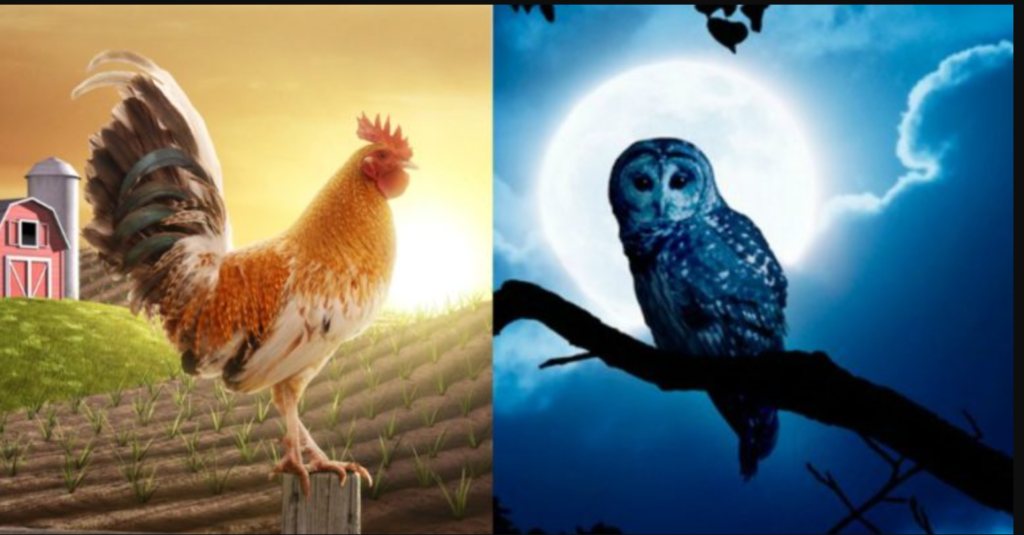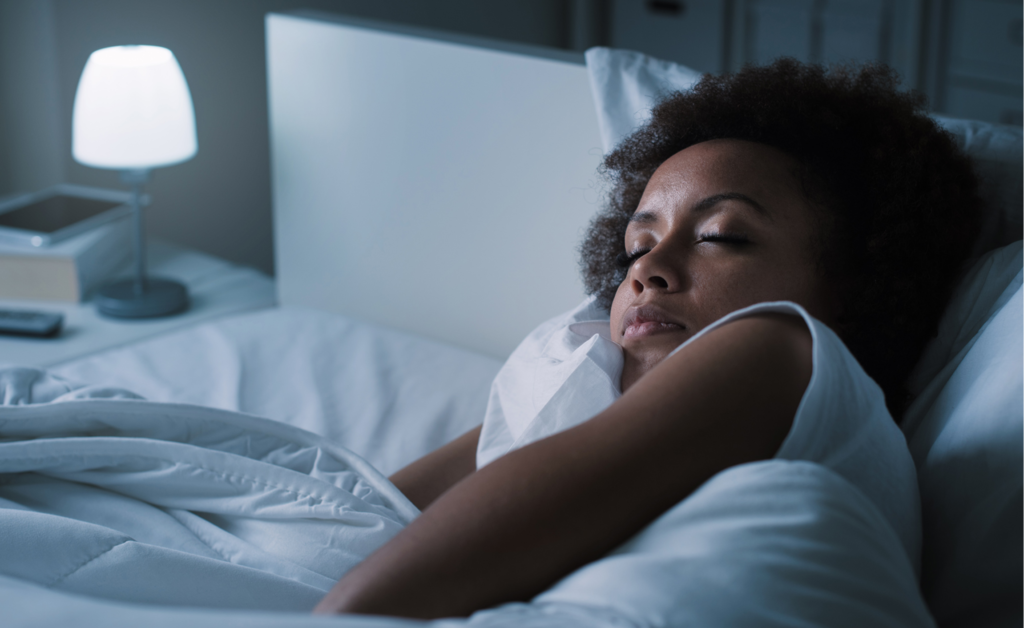Night Owls Or Early Risers : Are you a morning person or a night person? Do you prefer to wake up early and get things done, or stay up late and enjoy the night life? Your answer may reveal more than just your personal preference. It may also indicate your level of happiness and well-being.
Neuroscientist buzz around night owls and early riser
According to a recent study by a team of researchers from the University of Exeter and Harvard-affiliated Massachusetts General Hospital, people who are genetically programmed to rise early may have a lower risk of depression and schizophrenia, and a higher level of mental well-being, than those who are naturally inclined to stay up late
The study, published in the journal Molecular Psychiatry, analyzed the genomes of more than 700,000 people, who were asked to report whether they were morning people or evening people. The researchers identified 351 genetic regions that influence the sleep timing of individuals, and found that the more of these regions a person had, the more likely they were to be an early riser. They also used data from wrist-worn activity trackers worn by more than 85,000 people, and confirmed that the genetic variants they identified could shift a person’s natural waking time by up to 25 minutes
Also read : Is Water Indeed Moist? Scientists Are Uncertain

Night Owls Or Early Risers
The researchers then examined the link between these genetic variants and various health and psychological outcomes, such as body mass index, diabetes, cardiovascular disease, mood disorders, and cognitive abilities. They found that the early risers had a lower risk of depression and schizophrenia, and a higher level of subjective well-being, than the late risers. However, they did not find any significant association between the sleep timing genes and the physical health outcomes
The researchers suggest that the lower risk of mental health problems among the early risers may be due to their better alignment with the natural light-dark cycle, which regulates the body’s internal clock, or circadian rhythm. The circadian rhythm affects various biological functions, such as hormone levels, body temperature, and sleep quality, which in turn influence the mood, cognition, and behavior of individuals. When the circadian rhythm is disrupted, such as by jet lag, shift work, or artificial light, it can cause various negative effects, such as insomnia, fatigue, irritability, and depression

Night Owls Or Early Risers
The researchers also suggest that the higher level of well-being among the early risers may be due to their better fit with the social and environmental norms, which favor morning activities, such as work, school, and leisure. The early risers may have more opportunities and advantages to pursue their goals and interests, and to interact and cooperate with others, than the late risers, who may face more challenges and barriers to adapt to the conventional schedule and expectations
The researchers caution that their findings do not imply that the late risers are doomed to be unhappy or unhealthy, or that they should force themselves to change their habits. They acknowledge that the sleep timing of individuals is influenced by not only genetics, but also by various environmental and lifestyle factors, such as light exposure, temperature, diet, exercise, and social cues. They also emphasize that the sleep timing genes account for only a small fraction of the variation in the sleep patterns and the health outcomes of individuals, and that there may be other factors that mediate or moderate the relationship between them

Night Owls Or Early Risers
Therefore, the researchers recommend that the late risers should try to adjust their environment and behavior to suit their natural rhythm, such as by avoiding bright light at night, using dark curtains or eye masks, and following a regular and consistent sleep schedule. They also suggest that the society should be more flexible and accommodating to the diverse sleep preferences and needs of individuals, such as by allowing more flexibility in work and school hours, and providing more support and resources for the night owls

Night Owls Or Early Risers
Early risers and night owls: A neuroscientist explains who is happiest is an interesting and relevant topic that shows how genetics, environment, and lifestyle affect the sleep patterns and the well-being of individuals. By using a large-scale genomic analysis and a wearable device data, the researchers have provided the strongest evidence to date that the early risers may have a lower risk of mental health problems and a higher level of well-being than the late risers. However, they have also acknowledged the limitations and implications of their findings, and have offered some practical and realistic suggestions for the late risers and the society to cope with and benefit from the diversity of the sleep timing
FAQ: A Neuroscientist Reveals Which People Are Happiest: Night Owls or Early Risers
Q: Are night owls or early risers generally happier, according to neuroscience?
A: The happiness of night owls versus early risers is a complex topic. While individual preferences play a significant role, neuroscience suggests that factors like circadian rhythms and genetic predispositions influence the well-being of individuals with different sleep patterns.
Q: What are circadian rhythms, and how do they relate to happiness?
A: Circadian rhythms are natural, internal processes that regulate the sleep-wake cycle. These rhythms vary among individuals, influencing whether someone is naturally inclined to stay up late (night owl) or wake up early (early riser). The alignment of one’s routine with their circadian rhythm can impact overall happiness.
Q: Can being a night owl affect mental health?
A: Research indicates that night owls may face a higher risk of certain mental health issues, such as depression and anxiety. Discrepancies between societal expectations and an individual’s natural sleep preferences can contribute to these challenges.
Q: What about the impact of being an early riser on mental well-being?
A: Early risers may benefit from a better alignment with societal schedules, potentially reducing stress associated with conflicting sleep patterns. However, individual happiness is subjective and depends on various factors beyond sleep preferences.
Q: Are there genetic factors influencing whether someone is a night owl or an early riser?
A: Yes, genetics play a role in determining whether someone is a night owl or an early riser. Certain genes influence an individual’s circadian rhythm, contributing to their natural inclination toward staying up late or waking up early.
Also read :The End Of Becoming Older? Medication To Counteract Your Ageing Is Being Developed By A New AI
source:1sciencefocus.com2news.harvard.edu




































